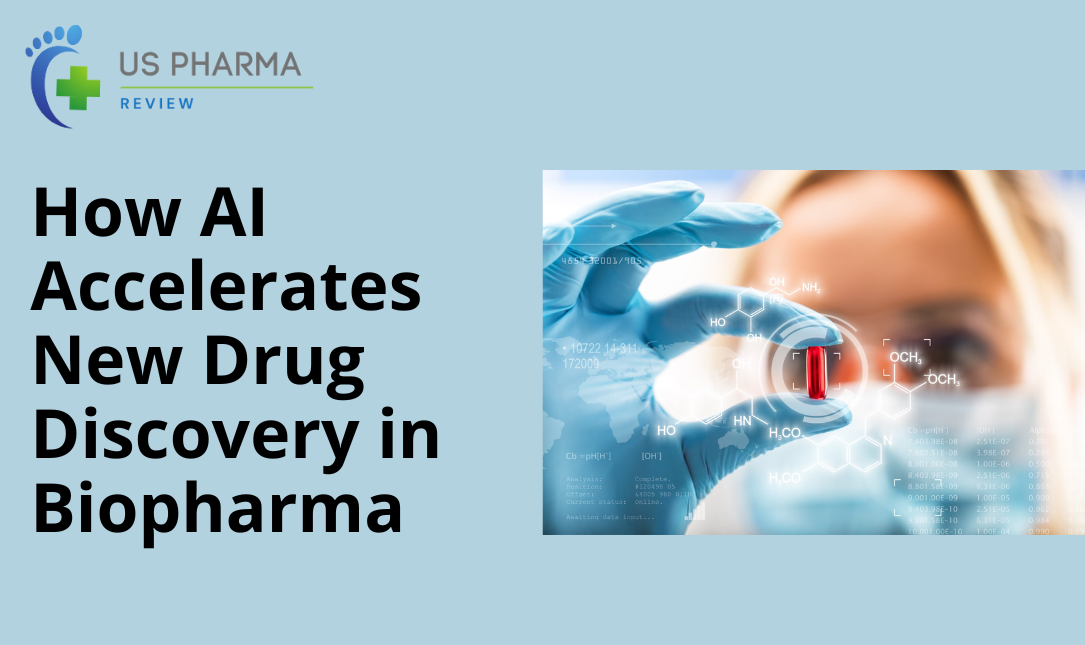Travel Tips
Lorem ipsum dolor sit amet, consectetur adipiscing elit.

In the fast-evolving world of biopharma, the phrase New Drug Discovery is no longer limited to traditional laboratory research. Today, it encompasses a seamless integration of computational tools, vast data sets, and artificial intelligence. This article explores how AI is making significant strides in unlocking novel therapies, driving drug development innovation, and hastening the biotech pipeline acceleration that is reshaping the future of medicine.
The journey of New Drug Discovery typically begins with target identification, moves through lead generation, pre-clinical testing and into clinical trials. Historically, each step has been time-consuming, expensive and laden with failure. With the advent of AI in pharma, many of these constraints are being addressed. By leveraging machine learning, deep-learning models and predictive analytics, companies can streamline early-stage research, reduce risk and improve decision-making. The result: a faster, more efficient pipeline of promising drug candidates.
One of the first bottlenecks in New Drug Discovery is finding the right biological target. AI platforms can process large genomic, proteomic and phenotypic datasets to surface novel targets that might have been overlooked. For example, machine-learning models trained on past successful targets can learn patterns and propose new ones based on similarity and network biology. This capability exemplifies how AI in pharma is enabling drug development innovation by uncovering opportunities much earlier and with greater confidence.
Once a target is identified, the next phase in New Drug Discovery involves designing molecules that modulate that target effectively. Here, AI-driven approaches such as generative adversarial networks (GANs), reinforcement learning and virtual screening are game-changers. These tools allow researchers to evaluate hundreds of millions of compounds in silico, prioritize those with high affinity and favorable pharmacokinetics, and predict potential toxicity before committing to costly lab work. The synergy of AI in pharma and classic chemistry accelerates biotech pipeline acceleration, reducing the iteration cycles that used to take months into weeks or days.
Safety failures account for a large share of attrition in late-stage drug development. By integrating AI models trained on historical safety data, pharmaceutical companies can anticipate off-target effects, metabolic liabilities and adverse events earlier in the New Drug Discovery process. This predictive capability improves resource allocation, mitigates risk and enhances regulatory readiness. In turn, the overall pace of drug development innovation receives a powerful boost.
Even once a candidate enters the clinic, AI continues to play a critical role. In the realm of New Drug Discovery, clinical trials represent a major cost and timeline burden. AI can optimize trial design by identifying suitable patient cohorts, stratifying populations via biomarkers and predicting outcomes using real-world data. With smarter trial design, fewer patients may suffice, and adaptive protocols become more feasible. This marks a significant step in biotech pipeline acceleration by shortening time-to-market for promising therapies.
Several biopharma firms already report outcomes driven by AI in pharma. Targets previously considered “undruggable” are now being revisited, and novel therapeutic modalities like targeted protein degradation or gene editing are supported by AI-based pipelines. In the context of New Drug Discovery, this means more diverse modalities, more accurate predictions and—ultimately—more therapies reaching patients faster and at lower cost. The synergy between machine-learning insights and experimental biology is ushering in a new era of drug development innovation.
At the core of successful AI integration lies robust data architecture. Biopharma companies must aggregate and curate multi-omics, clinical, pre-clinical, imaging and real-world evidence data to fuel AI-driven models. In the context of New Drug Discovery, the alignment of data governance, AI systems and domain expertise fosters greater insights and drives biotech pipeline acceleration. Without this foundation, efforts to apply AI in pharma often fall short or deliver limited returns.
Despite the promise, adopting AI in pharma for New Drug Discovery comes with its challenges. Regulatory pathways for AI-enabled decision-making remain nascent. Data privacy and interoperability issues can hamper progress. Furthermore, interpretability of AI models—especially deep-learning systems—can create hurdles in accepting predictions from non-human-intuitive models. Overcoming these obstacles is crucial to fully realize the benefits of drug development innovation and biotech pipeline acceleration.
To maximize the value of AI in the New Drug Discovery process, biopharma organizations should adopt several best practices:
Start with high-quality, well-curated data sets and invest in data infrastructure.
Foster collaboration between computational scientists, biologists and clinicians to align AI outputs with real-world biology.
Embrace modular, interpretable AI models and ensure transparent validation and benchmarking.
Integrate AI models across the pipeline—from target identification to clinical trial design—to achieve full biotech pipeline acceleration.
Keep abreast of regulatory developments, partnering with regulatory agencies to build trust in AI-driven frameworks.
The trajectory for New Drug Discovery continues to rise as AI in pharma becomes more deeply embedded. As algorithms get smarter and data grows richer, the next phase of drug development innovation will likely involve autonomous experimentation, closed-loop learning systems and digital twins of patients or disease models. These advances will further compress timelines, reduce costs and bring novel therapies to patients in an era of precision medicine. For a deeper dive, see our article on AI-Driven Drug Research: New Trends in 2025 for insights into how AI is reshaping drug research.
In summary, AI is a compelling accelerator for New Drug Discovery. From target identification to clinical trial design, the ability to harness computational intelligence alongside human expertise is transforming how therapies are discovered, developed and delivered. For organizations that embrace AI in pharma with the right data strategy, cross-functional collaboration and regulatory awareness, the promise of drug development innovation and biotech pipeline acceleration is within reach. The future of biopharma is being redefined—and it’s accelerating.